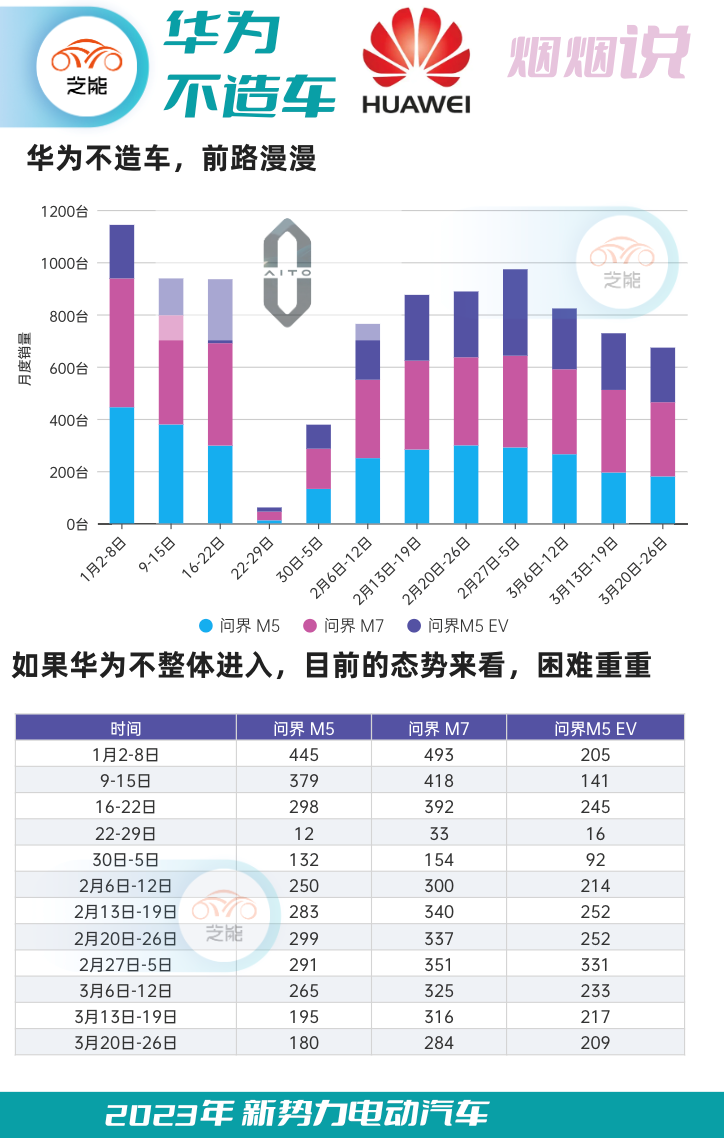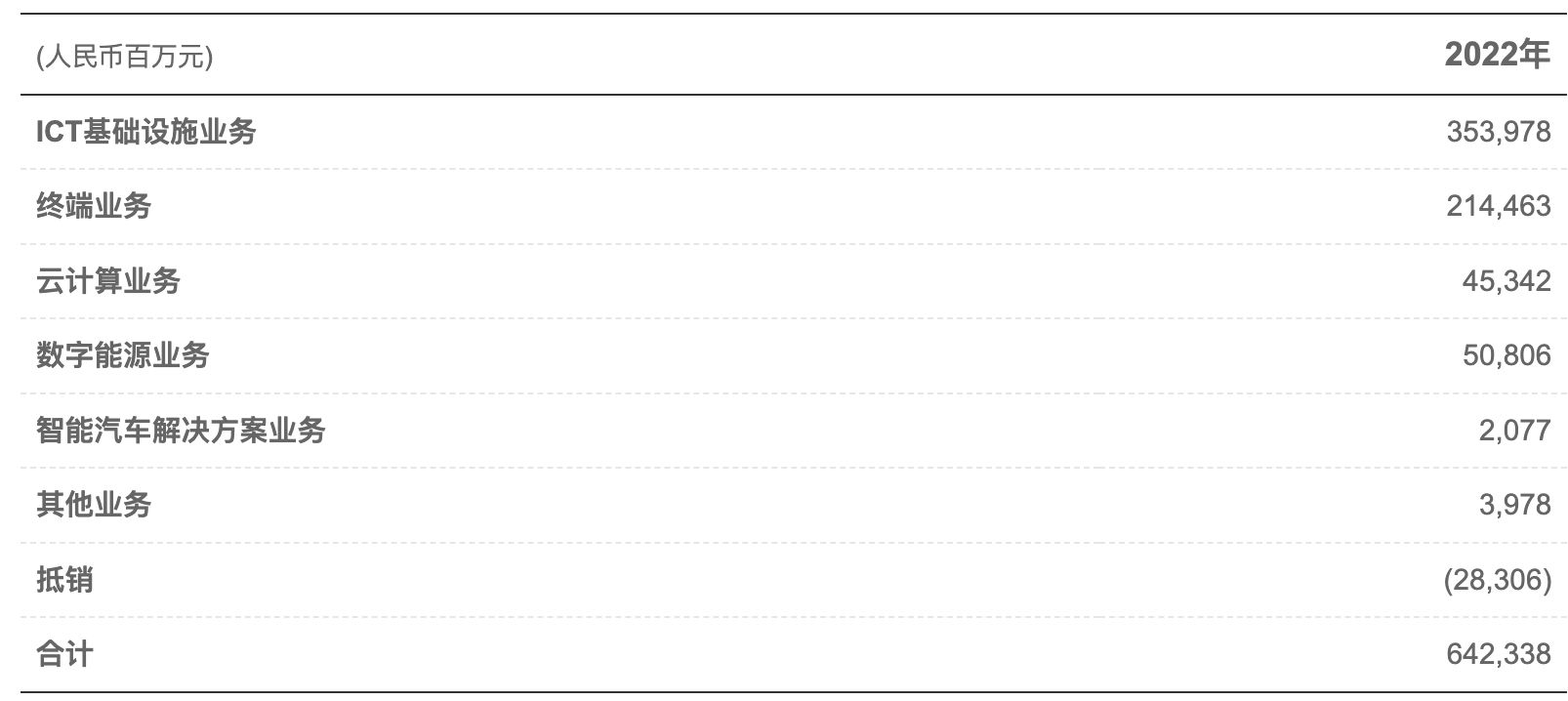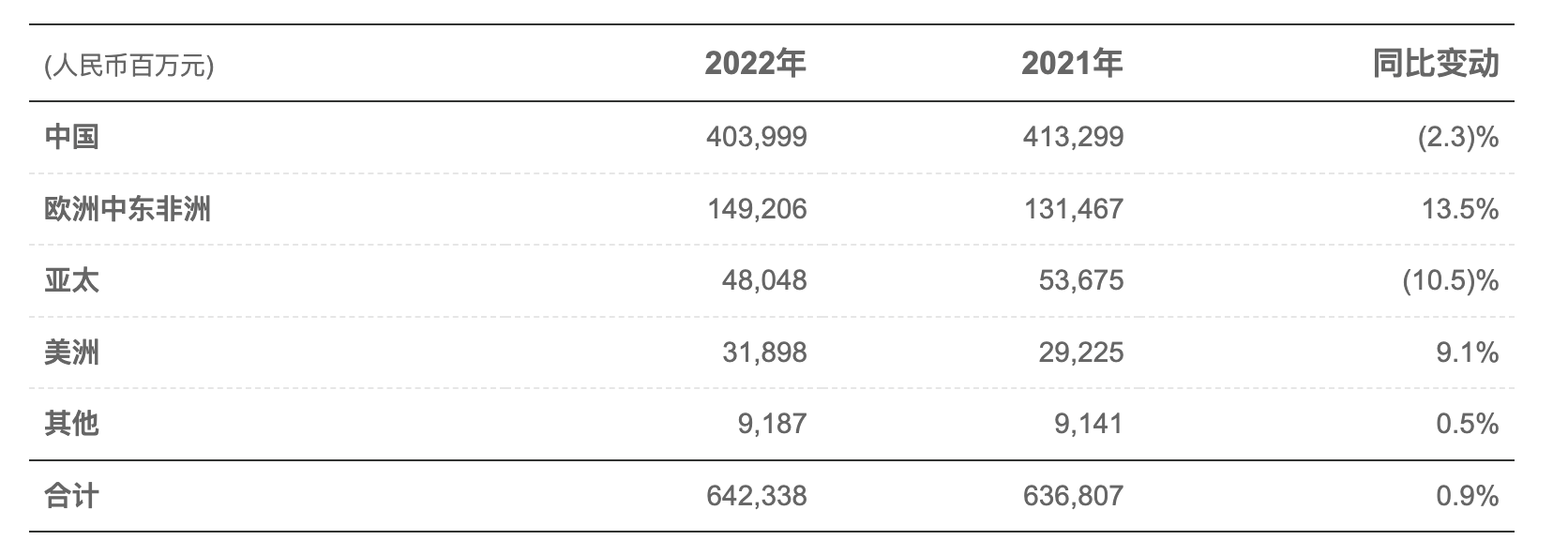Translate the following Markdown text from Chinese to English in a professional manner. Retain the HTML tags in the Markdown and only output the results.
Author: Tao Yanyan
Today’s biggest news is the reiteration of whether Huawei will manufacture cars at the 2022 annual report conference:
“Some departments, individuals, or partners are misusing the Huawei brand; this issue is being investigated.“
This directly points to the automotive business department led by Huawei Consumer Business CEO, Yu Chengdong, who has recently faced significant pressure: “Times have changed, making things even more difficult for us!“
Looking at the data, as of last week, there were just over 9,000 AITO vehicles registered for 2023.

What are Huawei’s strengths?
Huawei is one of China’s most prestigious global technology leaders, excelling in technology, R&D capabilities, supply chain management, and global market marketing.

If Huawei were to enter the automotive industry, it would leverage its strong technological background in 5G, artificial intelligence, cloud computing, and the Internet of Things. These technologies can be integrated into car designs to enhance intelligence and connectivity, with a wealth of experience and technical talent accumulated in sectors like smartphones and telecommunications equipment, helping Huawei develop more innovative and competitive automotive products.
However, entering the automotive industry is challenging, and becoming a supplier in the current climate is not feasible given Huawei’s posture and partnership attitude. The automotive market is highly competitive, and Huawei would struggle to thrive in a low-margin environment.
1) Car manufacturing requires massive investments in production lines, supply chains, and global marketing resources, which do not align with Huawei’s current business and asset structure. Leading a light-asset car manufacturing approach by leveraging underperforming automakers to launch their products is an attempt by Huawei.
2) From 2023 onwards, we see that established companies have already invested heavily in R&D and time, creating very low-cost products in the automotive industry. Should Huawei fully commit to this sector, they will face significant competitive pressure and need to spend considerable funds to establish their brand and sales channels. Transforming Huawei into an automotive brand is a double-edged sword, which seems to be an undesirable move for Huawei at the moment.3) Huawei’s overall entry has a significant impact on its core business in the automotive industry, as well as in Europe and abroad; currently, the discussion on the pros and cons of this issue shows that the revenue of nearly 150 billion in Europe and other regions is quite important.

In summary: The Huawei matter is essentially a business deal; at present, it appears that what Huawei stands to lose may outweigh what it can gain. Therefore, this matter will not be pursued for five years, and once those five years pass, the rivers and lakes will no longer involve Huawei’s automotive endeavors.
This article is a translation by ChatGPT of a Chinese report from 42HOW. If you have any questions about it, please email bd@42how.com.
